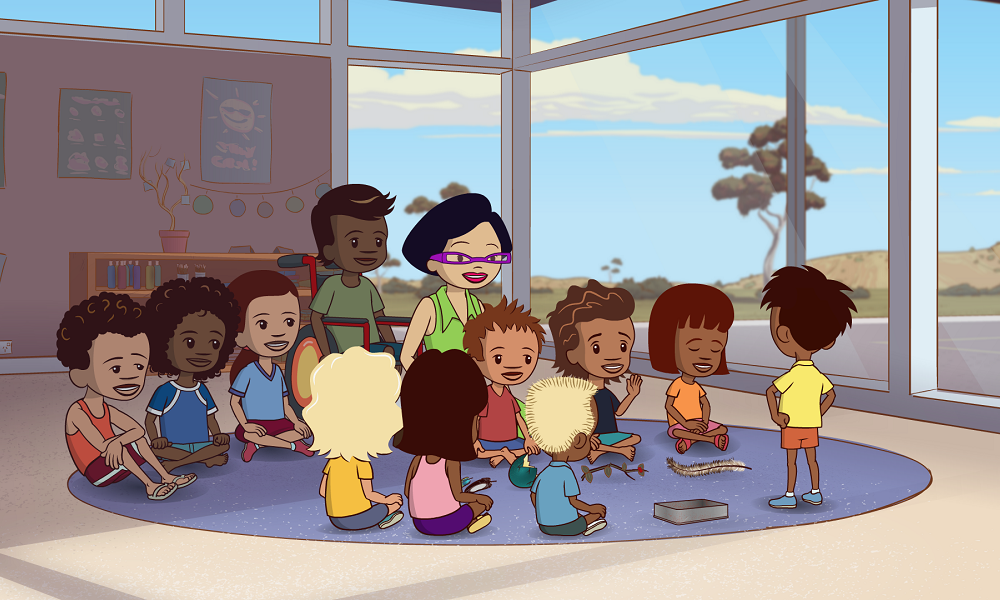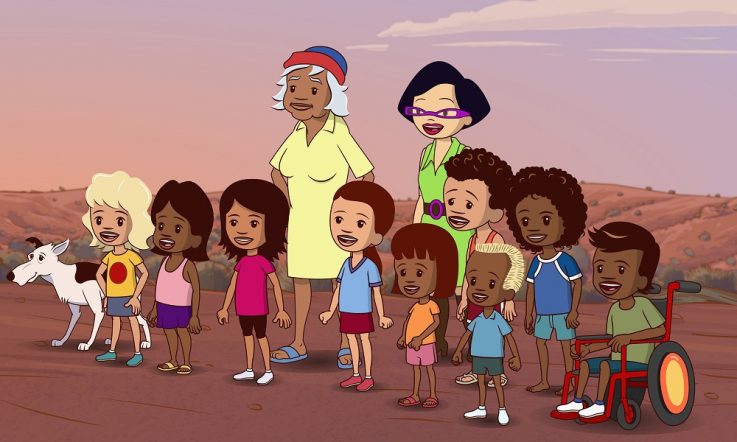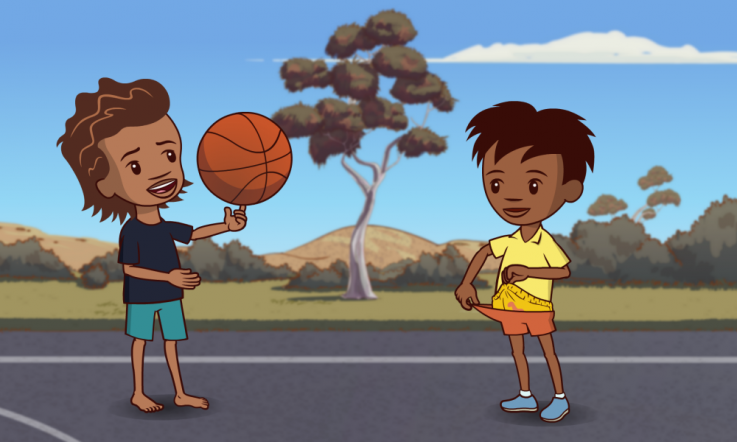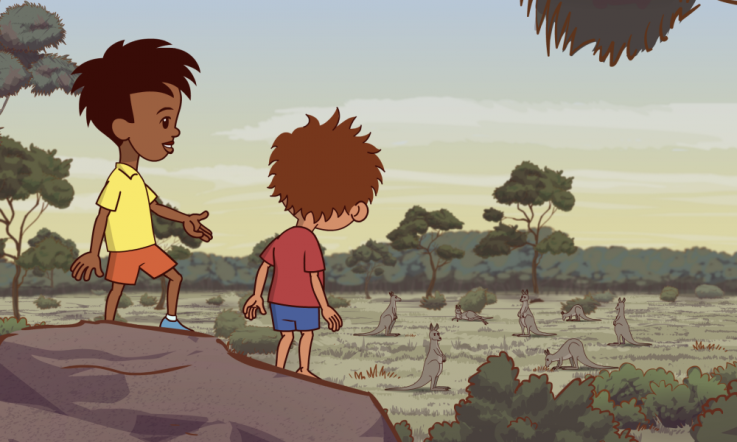Little J & Big Cuz is an animated children's series that follows two Aboriginal children who live with their nanna and lovable dog. The 13 episodes explore the unfamiliar world of school and how, with the help of their teacher Miss Chen, Little J and Big Cuz navigate their first years of school life. In this regular blog, Miss Chen will be sharing some of the F-2 resources she's been using in her classroom, which are all available to download for free via the Little J & Big Cuz website.
Hi, my name is Miss Chen and I am a primary school teacher. Teaching is one of my greatest passions in life. In fact, my goal is to have my students enjoy school as much as I do! I'm the only teacher in my school so I have to work hard to ensure my F-2 program is dynamic and based around the children's interests.
While my father was born in South East Asia, my mother's family have been in Australia for generations. My mum taught me a lot about the land and the importance of Aboriginal culture but I still have lots to learn, which is why I love working closely with Indigenous elders and other families in my community.
On this blog I'll be sharing some of the exciting resources I've been using in my classroom that are all free to download on the Little J & Big Cuz educator resource page.
Here's an activity where my preschool students learned how to play a traditional Indigenous bush game called ‘wallee ngnan weerup'.
Engaging young children in educational games is incredibly important in the early years, which is why I'm always on the look-out for new and interesting games to play with the youngsters in my class.
Earlier this week we tried out a new one, which worked wonderfully. More often than not, I take the children outside to play these games on Country, and I always invite any local community members to join us for these activities. After all, any opportunity to build on current understandings or grow a language that respects the voices of Indigenous peoples is one that should be grabbed with both hands. On this occasion we were joined by a nanna of one of the students.
The game we played is essentially a version of hide and seek called ‘the hunting or bush game', or wallee ngnan weerup from the West Kimberley area of Western Australia. We first found a nice patch beside the school where there are plenty of trees which acted as great hiding places for the kids. I then picked two students to be the kangaroos (jamarra) and the others were all assigned the role of hunters.
The hunters all counted while the kangaroos hid, and then the children were encouraged to go searching for them in the play area. Once they were found, the children had to pretend that they had ‘captured' the kangaroo and return with this player back to the camp. The game then restarted.
Once we returned to the classroom, as a group we practiced the following sentences which directly related to the game:
- ‘Pindan yangarrama': We will play the bush game.
- ‘Joon wanjoolboo': You drive him.
- ‘Nowloo goon weerup': Hit with club.
- ‘Joona joodoo joodoo wongoola': You throw him down there.
- ‘Booroo ngan dammajinna': I missed him.
- ‘Kai! kala! ngan barrin': Hurrah! I've got him.
While the students loved the experience of playing outside, there was a whole lot of real-life learning taking place at the same time. Afterwards we discussed how we can all join in games in different ways and in different roles. I asked them the question: How can we make the games we play inclusive of all friends? This led to a discussion about how we can celebrate each other's success and the learning of new knowledge and skills.
Here's more information about the things we learned during this activity. Visit this website to download more resources and the specific lesson plan I used for this activity.
The resource mentioned in this blog post is directly related to Little J & Big Cuz Episode 3 ‘New Tricks’. It is recommended that your students view the episode before engaging in the activities listed in the resource.
Visit the Little J & Big Cuz website to view the full suite of resources for each episode in the series.



